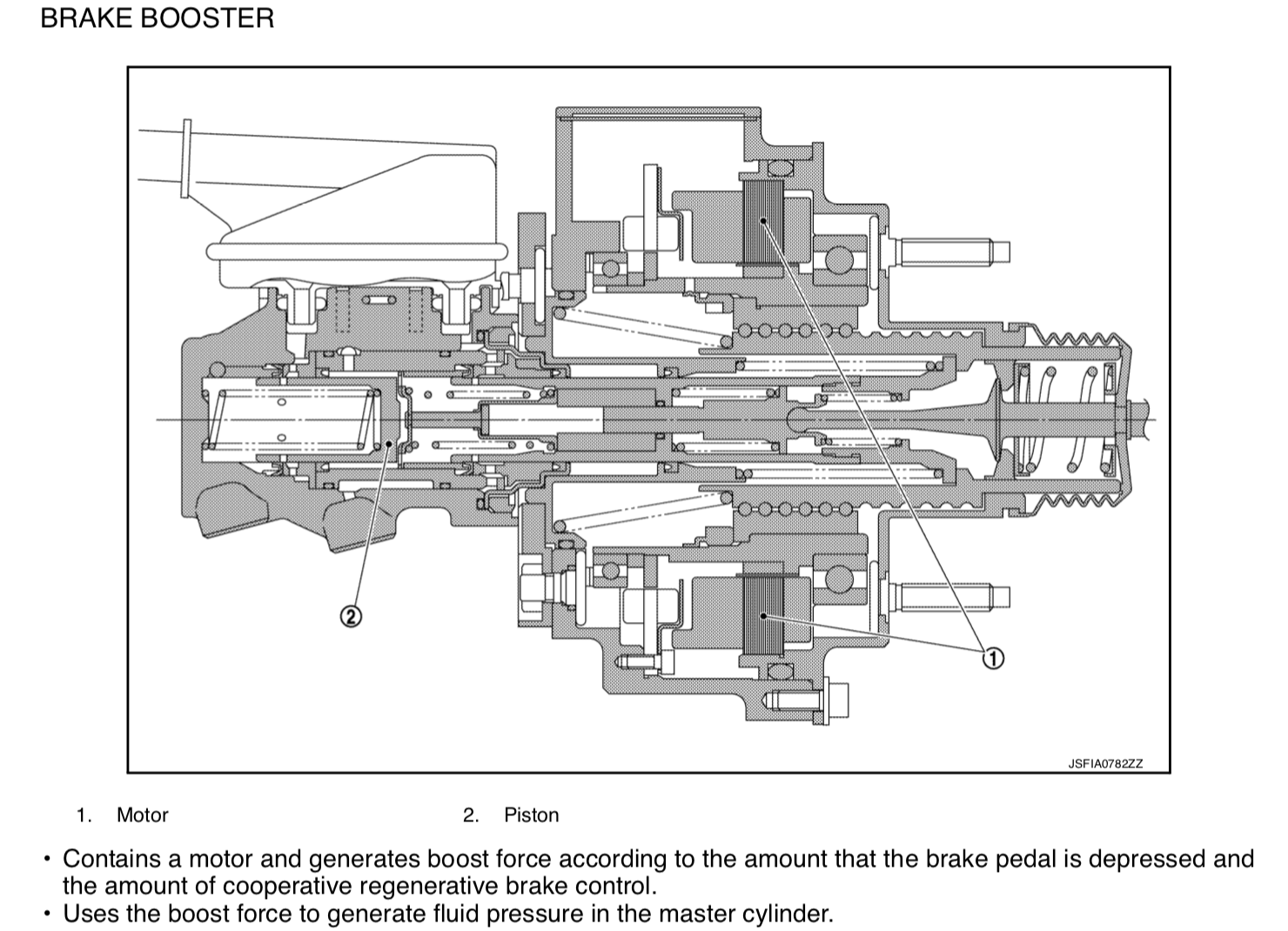rwherrick
Well-known member
Hi,
I bought one of the earliest Nissan Leafs (2011, S/N 000445), and in addition to having rapid failure of the battery pack, it had grabby brakes from the start of the second year. In June, I got Nissan to do "routine maintenance" on it, and it started leaking brake fluid after that. A few weeks ago, it started having the VDC warning light and the brake system warning light come on when the car started. I took it in to Nissan, and they told me that to fix it, they would need to replace the brake master cylinder, and were glad to do it, and it would only cost $3718.63, in addition to the $255 they charged me to look at the car. Given that the car only has a trade in value of $2213, or a private party resale value of $4083, this didn't seem like a good investment to me. I called Nissan to ask for after-warranty assistance, and made the case that this should not be a normal repair expense for a car of this age, but they said they do not provide any after-warranty assistance for cars older than 9 years, regardless of the circumstances. I would be tempted to get a brake master cylinder from a junkyard, and have an independent repair garage install it (Nissan won't touch it), but the repair looks so complicated, I've only been able to find one post where someone did that, and it didn't sound like it went all that smoothly. (see part by bluelightning32 in the middle of page 2 at https://mynissanleaf.com/viewtopic....ghtning32+brake+2011+leaking&start=10#p511417)
Has anyone else either replaced the brake master cylinder, or had an independent repair shop do the work? If yes, was the shop able to do the re-calibration, or did it need to get towed to Nissan after the install was complete? It seems like a shame to scrap out a car with under 85,000 miles because Nissan failed in "design-for-maintainability," but that does appear where this is headed at this point. In case anyone is interested in the details, the brake master cylinder is officially called the "electrically-driven intelligent brake unit", and its removal and installation is detailed starting on page BR-261 in the Nissan Leaf repair manual listed here (https://www.nicoclub.com/service-manual?fsm=Leaf/2011/br.pdf). The repair looks incredibly complex, and I can see why nearly all independent repair shops would shy away from it. It's a shame Nissan didn't make something simpler, with a vacuum brake booster, that could have been replaced for a normal cost.
Thanks for your help,
Bob
I bought one of the earliest Nissan Leafs (2011, S/N 000445), and in addition to having rapid failure of the battery pack, it had grabby brakes from the start of the second year. In June, I got Nissan to do "routine maintenance" on it, and it started leaking brake fluid after that. A few weeks ago, it started having the VDC warning light and the brake system warning light come on when the car started. I took it in to Nissan, and they told me that to fix it, they would need to replace the brake master cylinder, and were glad to do it, and it would only cost $3718.63, in addition to the $255 they charged me to look at the car. Given that the car only has a trade in value of $2213, or a private party resale value of $4083, this didn't seem like a good investment to me. I called Nissan to ask for after-warranty assistance, and made the case that this should not be a normal repair expense for a car of this age, but they said they do not provide any after-warranty assistance for cars older than 9 years, regardless of the circumstances. I would be tempted to get a brake master cylinder from a junkyard, and have an independent repair garage install it (Nissan won't touch it), but the repair looks so complicated, I've only been able to find one post where someone did that, and it didn't sound like it went all that smoothly. (see part by bluelightning32 in the middle of page 2 at https://mynissanleaf.com/viewtopic....ghtning32+brake+2011+leaking&start=10#p511417)
Has anyone else either replaced the brake master cylinder, or had an independent repair shop do the work? If yes, was the shop able to do the re-calibration, or did it need to get towed to Nissan after the install was complete? It seems like a shame to scrap out a car with under 85,000 miles because Nissan failed in "design-for-maintainability," but that does appear where this is headed at this point. In case anyone is interested in the details, the brake master cylinder is officially called the "electrically-driven intelligent brake unit", and its removal and installation is detailed starting on page BR-261 in the Nissan Leaf repair manual listed here (https://www.nicoclub.com/service-manual?fsm=Leaf/2011/br.pdf). The repair looks incredibly complex, and I can see why nearly all independent repair shops would shy away from it. It's a shame Nissan didn't make something simpler, with a vacuum brake booster, that could have been replaced for a normal cost.
Thanks for your help,
Bob

